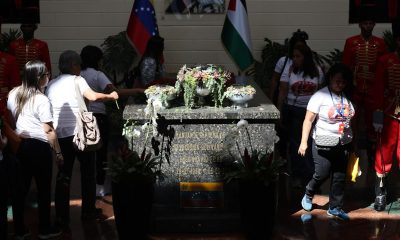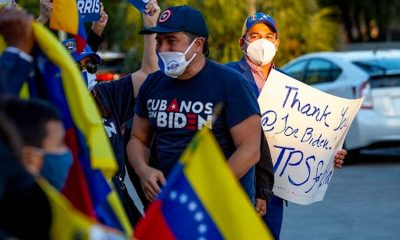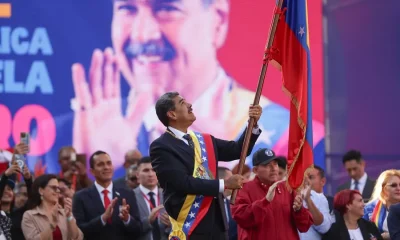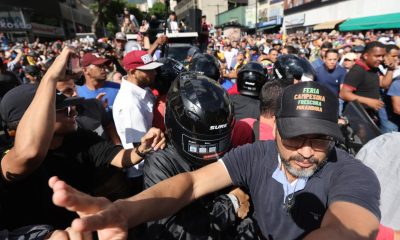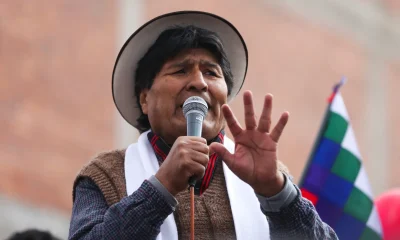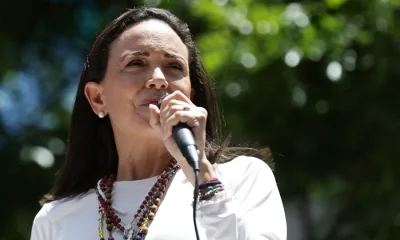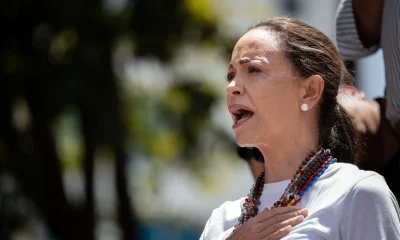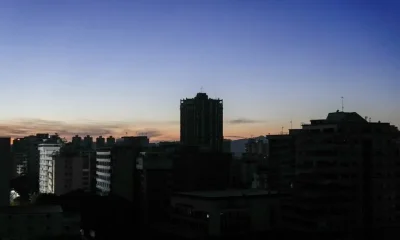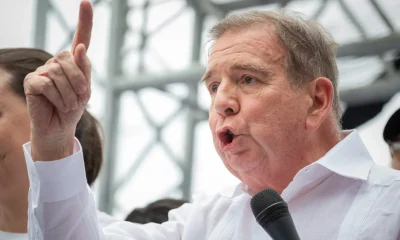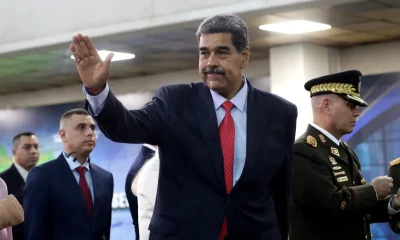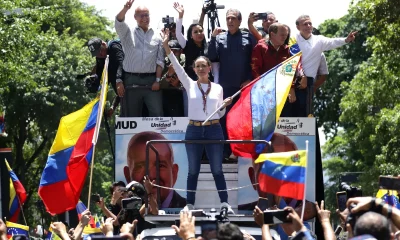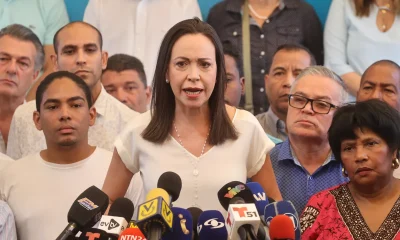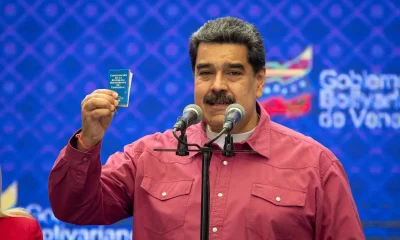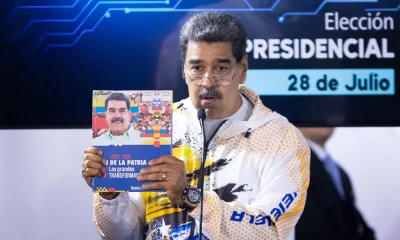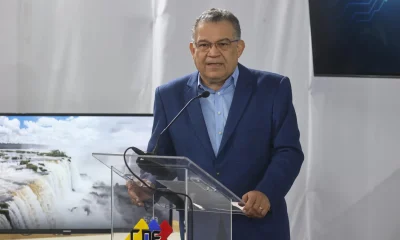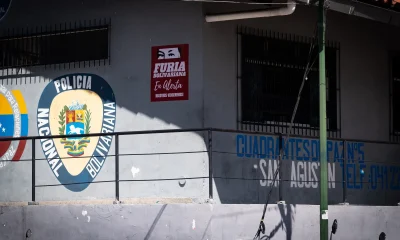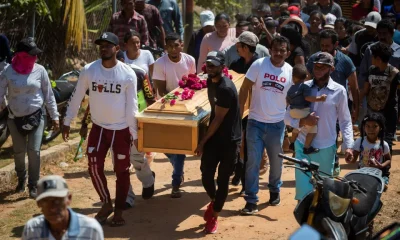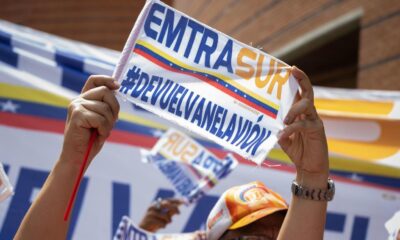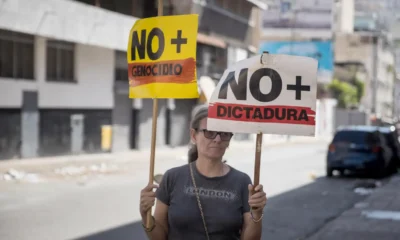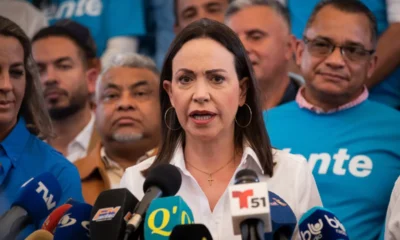International
Mujica says that in Venezuela “it seems that they play democracy but they don’t play”
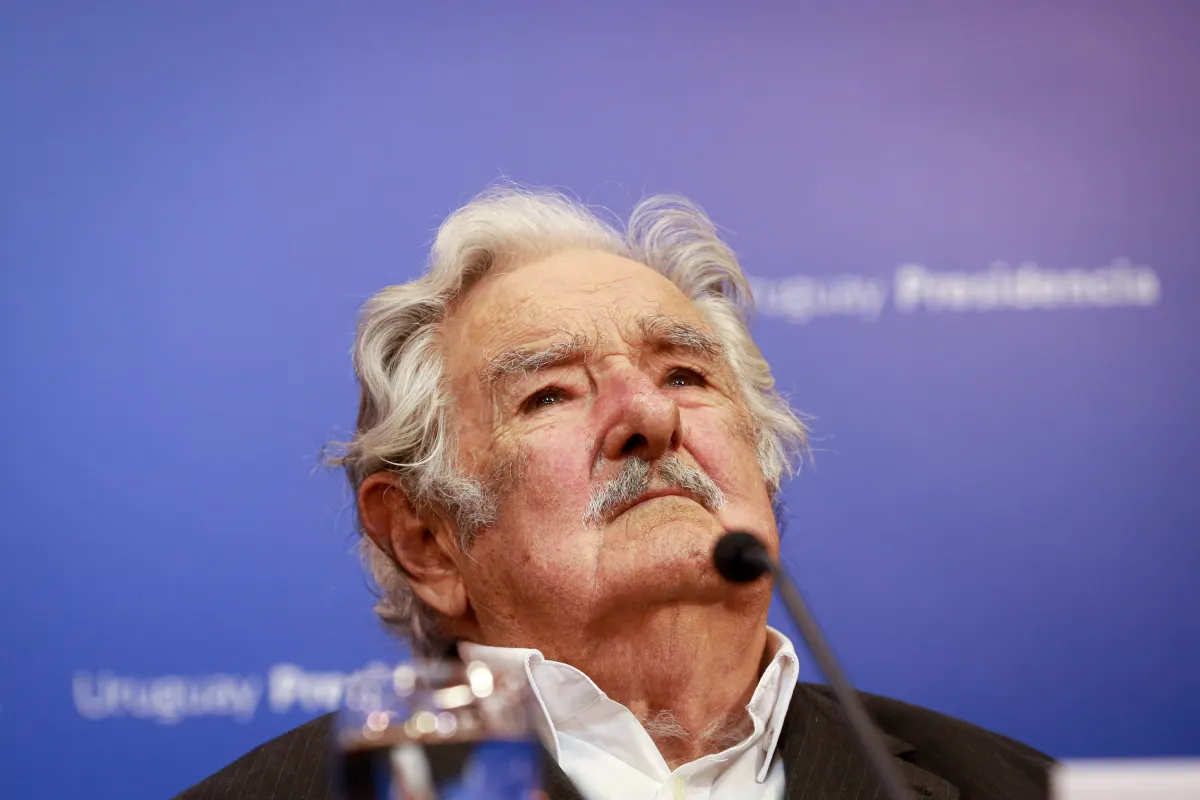
The leftist and former Uruguayan president José ‘Pepe’ Mujica said that the situation in Venezuela is “unfortunate” because in the Caribbean country “it seems that they play democracy but they do not play democracy.”
Within the framework of an act of its political force, the left-wing coalition Frente Amplio (FA), and consulted about the concern expressed by governments of various Latin American countries after the disqualification of the opposition candidate Corina Yoris, Mujica declared to the press that “Venezuela is regrettable.”
“It seems that they play democracy but they do not play democracy,” he said, who in turn warned that it is “mistaken” to use the term dictatorship to refer to the government of Nicolás Maduro with a comparison with countries in the Middle East.
“The term dictatorship is ambiguous, what’s in Afghanistan? What do the Taliban have? Are they dictatorships or are they theocracies? And what is there in Saudi Arabia? That is, we use the terms without specifying,” said the former guerrilla who ruled Uruguay between 2010 and 2015.
To this he added that “what is clear is that in Venezuela there is no elementary respect for the opposition and that disturbs and creates a situation that cannot be called democracy.”
Mujica’s statements come after the pre-candidate for the FA he supports for the internal elections in June was criticized by official pre-candidates for saying that the disqualification of candidates in Venezuela is like “cheating” in a horse race for not letting everyone run.
The Uruguayan vice president, Beatriz Argimón, said last Thursday that in Venezuela there was “a process of recrudescence in what is the dictatorship” to which she defended the decision of the president, Luis Lacalle Pou, to maintain an ambassador in the Caribbean country.
Earlier, the Foreign Minister, Omar Paganini, assured that Venezuela is consolidating itself as “a dictatorship” and that its electoral process “has been completely distorted.”
Paganini thus stressed the importance of the statement in which Uruguay expressed, together with Argentina, Costa Rica, Ecuador, Guatemala, Paraguay and Peru, its “serious concern” in the face of the “persistent impediments” in the registration of presidential elections before the National Electoral Council.
The presidents of Brazil, Luiz Inácio Lula da Silva, and France, Emmanuel Macron, also sent a strong message on Thursday to Maduro, whom they urged to hold democratic elections “with the participation of all” after describing as “serious” the disqualification of Yoris, chosen to replace the already banned María Corina Machado.
International
U.S. Senate Rejects Budget, Bringing Government Closer to Shutdown Amid DHS Dispute

The U.S. Senate voted on Thursday against a budget proposal in a move aimed at pressuring changes at the Department of Homeland Security (DHS), following the killing of two civilians during a deployment of immigration agents in Minneapolis.
All Senate Democrats and seven Republican lawmakers voted against the bill, which requires 60 votes to advance, pushing the country closer to a partial government shutdown that would cut funding for several agencies, including the Pentagon and the Department of Health.
The rejection came as Senate leaders and the White House continue negotiations on a separate funding package for DHS that would allow reforms to the agency. Proposed measures include banning Immigration and Customs Enforcement (ICE) agents from wearing face coverings and requiring them to use body-worn cameras during operations.
The vote took place just hours after President Donald Trump said he was “close” to reaching an agreement with Democrats and did not believe the federal government would face another shutdown, following last year’s record stoppage.
“I don’t think the Democrats want a shutdown either, so we’ll work in a bipartisan way to avoid it. Hopefully, there will be no government shutdown. We’re working on that right now,” Trump said during a Cabinet meeting at the White House.
International
Trump Says Putin Agreed to One-Week Halt in Attacks on Ukraine Amid Extreme Cold

U.S. President Donald Trump said on Thursday that he secured a commitment from Russian President Vladimir Putinto halt attacks against Ukraine for one week, citing extreme weather conditions affecting the region.
“Because of the extreme cold (…) I personally asked Putin not to attack Kyiv or other cities and towns for a week. And he agreed. He was very pleasant,” Trump said during a Cabinet meeting broadcast by the White House.
Trump acknowledged that several advisers had questioned the decision to make the call.
“A lot of people told me not to waste the call because they wouldn’t agree. And he accepted. And we’re very happy they did, because they don’t need missiles hitting their towns and cities,” the president said.
According to Trump, Ukrainian authorities reacted with surprise to the announcement but welcomed the possibility of a temporary ceasefire.
“It’s extraordinarily cold, record cold (…) They say they’ve never experienced cold like this,” he added.
Ukrainian President Volodymyr Zelensky later commented on the announcement, expressing hope that the agreement would be honored.
International
Storm Kristin Kills Five in Portugal, Leaves Nearly 500,000 Without Power

Storm Kristin, which battered Portugal with heavy rain and strong winds early Wednesday, has left at least five people dead, while nearly half a million residents remained without electricity as of Thursday, according to updated figures from authorities.
The revised death toll was confirmed to AFP by a spokesperson for the National Emergency and Civil Protection Authority (ANPEC). On Wednesday, the agency had reported four fatalities.
Meanwhile, E-Redes, the country’s electricity distribution network operator, said that around 450,000 customers were still without power, particularly in central Portugal.
Emergency services responded to approximately 1,500 incidents between midnight and 8:00 a.m. local time on Wednesday, as the storm caused widespread disruptions.
The Portuguese government described Kristin as an “extreme weather event” that inflicted significant damage across several regions of the country. At the height of the storm, as many as 850,000 households and institutions lost electricity during the early hours of Wednesday.
Several municipalities ordered the closure of schools, many of which remained shut on Thursday due to ongoing adverse conditions.
Ricardo Costa, regional deputy commander of the Leiria Fire Brigade, said residents continue to seek assistance as rainfall persists.
“Even though the rain is not extremely intense, it is causing extensive damage to homes,” he noted.
In Figueira da Foz, a coastal city in central Portugal, strong winds toppled a giant Ferris wheel, underscoring the severity of the storm.
-

 Central America3 days ago
Central America3 days agoGuatemala seizes over a ton of cocaine hidden in flour at Pacific port
-

 International5 days ago
International5 days agoDelcy Rodríguez seeks political agreements after Maduro’s ouster
-

 International3 days ago
International3 days agoHistoric snowstorm paralyzes Toronto after 60 centimeters of snow
-

 Central America2 days ago
Central America2 days agoGuatemala Police Arrest Prison Guard Caught in the Act of Extortion
-

 Central America2 days ago
Central America2 days agoBukele leads public trust rankings as UCA survey highlights gains in security
-

 Central America2 days ago
Central America2 days agoHonduras swears in conservative president Asfura after disputed election
-

 International3 days ago
International3 days agoSpain’s irregular migrant population rises to 840,000, study finds
-

 International5 days ago
International5 days agoFederal immigration agents kill man in Minneapolis, sparking protests and outrage
-

 International1 day ago
International1 day agoFootball Fan Killed in Clashes After Colombian League Match
-

 International2 days ago
International2 days agoWinter Storm Fern Leaves 30 Dead and Over One Million Without Power Across the U.S.
-

 Central America1 day ago
Central America1 day agoGuatemala President Says Starlink Terminal Found Inside Prison
-

 Sin categoría2 days ago
Sin categoría2 days agoEight Killed in Series of Armed Attacks in Ecuador’s Manabí Province
-

 International2 days ago
International2 days agoDoomsday clock moves to 85 seconds before midnight amid rising global risks
-

 International3 days ago
International3 days agoRights group says nearly 6,000 killed in Iran protest crackdown
-

 International1 day ago
International1 day agoMissing Spanish Sailor Rescued After 11 Days Adrift in Mediterranean
-

 International1 day ago
International1 day agoRubio Says U.S. Could Participate in Follow-Up Russia-Ukraine Talks
-

 International2 days ago
International2 days agoSpain approves plan to regularize up to 500,000 migrants in Historic Shift
-

 Sin categoría2 days ago
Sin categoría2 days agoEl Salvador Launches Fourth Year of Ocean Mission to Protect Marine Ecosystems
-

 International3 days ago
International3 days agoVenezuela frees at least 80 political prisoners, NGO says
-

 International3 days ago
International3 days agoEU launches new probe into X over AI-generated fake nude images
-

 International8 hours ago
International8 hours agoU.S. Senate Rejects Budget, Bringing Government Closer to Shutdown Amid DHS Dispute
-

 International3 days ago
International3 days agoFrance debates ban on social media for children under 15
-

 International3 days ago
International3 days agoSevere winter storm grips U.S., leaves multiple dead as extreme cold persists
-

 International8 hours ago
International8 hours agoStorm Kristin Kills Five in Portugal, Leaves Nearly 500,000 Without Power
-

 International8 hours ago
International8 hours agoTrump Says Putin Agreed to One-Week Halt in Attacks on Ukraine Amid Extreme Cold
-

 International8 hours ago
International8 hours agoMan Arrested After Vehicle Crashes Into Jewish Institution in Brooklyn





























